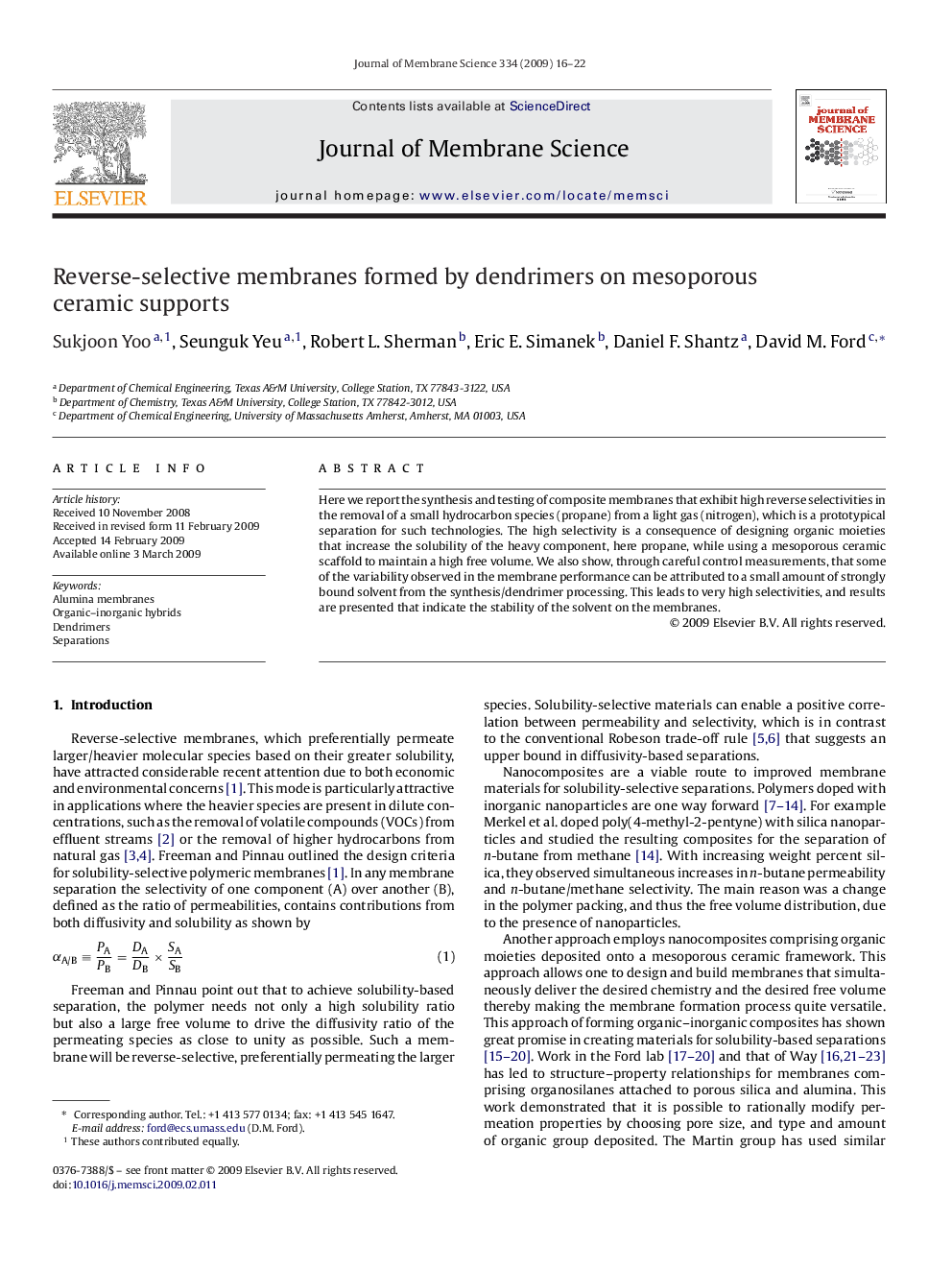| Article ID | Journal | Published Year | Pages | File Type |
|---|---|---|---|---|
| 637226 | Journal of Membrane Science | 2009 | 7 Pages |
Here we report the synthesis and testing of composite membranes that exhibit high reverse selectivities in the removal of a small hydrocarbon species (propane) from a light gas (nitrogen), which is a prototypical separation for such technologies. The high selectivity is a consequence of designing organic moieties that increase the solubility of the heavy component, here propane, while using a mesoporous ceramic scaffold to maintain a high free volume. We also show, through careful control measurements, that some of the variability observed in the membrane performance can be attributed to a small amount of strongly bound solvent from the synthesis/dendrimer processing. This leads to very high selectivities, and results are presented that indicate the stability of the solvent on the membranes.
